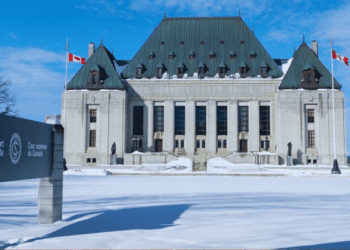
This article originally appeared in the Financial Post. Below is an excerpt from the article, which can be read in full here.
By Philip Cross, July 22, 2022
On Monday the federal government initiated a consultation on whether to use a cap-and-trade or a carbon tax to reduce emissions from Canada’s oil and gas sector by 40 per cent by 2030 — eight years from now. The industry is being asked to slash emissions more than the 30 per cent national target by either paying more than the existing tax on carbon or by lowering its production, which hardly seems what the world needs as it faces a growing energy shortage.
The federal government’s singling-out the oil and gas sector for outsized emissions reductions may have a silver lining, however. There is growing recognition in the business sector, if not yet in government, that decarbonizing our fossil-fuel supplies is a cheaper and more efficient way to lower emissions than decarbonizing their consumption. The latter involves overhauling the trillions of dollars of capital stock invested in our existing “mines, oil and gas fields, thermal power stations, hydroelectric dams, pipeline networks, ports, refineries, iron and steel mills, aluminum smelters, fertilizer plants, railroads, multilane highways, airports, skyscraper-dominated downtowns, and extensive suburbia” in the words of environmental scientist Vaclav Smil.
Moreover, decarbonizing oil and gas will be necessary even in a net-zero future since some uses of fossil fuels cannot reasonably be expected to disappear (notably their widespread use as a raw material in manufacturing everything from clothing to plastics). This is why the International Energy Agency expects fossil fuel production to still be a substantial 24 million barrels a day in its net-zero scenario for 2050.
Lowering emissions from oil and gas production will be costly. Some reductions, such as eliminating methane, are relatively easy, which is why the government expects them to fall 75 per cent by 2030. Other reductions involving carbon capture and sequestration will require billions of dollars of investment to capture emissions and ship them by pipeline to be buried underground. More investment will also be needed if small modular nuclear reactors replace the natural gas currently being used to melt the bitumen of in situ oilsands operations.
The fact that decarbonizing fossil fuels rather than re-tooling our whole society to shift away from using fossil fuels would save trillions of dollars makes it attractive for governments to subsidize these efforts, either through direct grants or tax credits, as both the Alberta and federal governments proposed in their spring budgets.
***TO READ THE FULL ARTICLE, VISIT THE FINANCIAL POST HERE***





